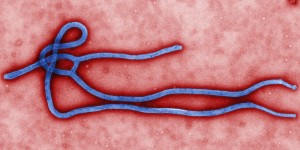
Massachusetts Gov. Deval Patrick hosted a press conference at Logan International Airport Tuesday to address the recent Ebola threats in Massachusetts and nationwide.
“We’re doing everything we can,” Patrick said. “According to the Centers for Disease Control [and Prevention], we still remain at low risk of Ebola, but we’re remaining vigilant.”
The address follows the treatment of a patient at Beth Israel Deaconess Medical Center Sunday who was transferred from Harvard Vanguard Medical Associates in Braintree after showing Ebola-like symptoms. The medical center later released a statement that the patient, who had recently traveled to Liberia, did not “meet the CDC criteria to be considered someone at high risk for Ebola.”
“All precautions continue to be taken to ensure the safety of our patients, their families and our staff,” the statement said.
The City of Boston is taking every public health concern seriously, and precautions are being taken, said Boston Mayor Martin Walsh in a Sunday press release.
“The City and our partners at Beth Israel Deaconess Medical Center and the Massachusetts Department of Public Health were in constant contact today as news of an Ebola scare began to break,” he said. “Our emergency preparedness plans are recognized as national models, and I have full confidence in our departments and healthcare organizations that we can keep Bostonians safe and healthy.”
The Ebola virus was first recognized in the United States in 1989, when it breeched quarantine facilities in Virginia and Pennsylvania, according to a timeline of the virus on the CDC’s website. On July 27 in Monrovia, Liberia, Samaritan’s Purse missionary doctor Kent Brantly and Serving in Mission worker Nancy Writebol became the first Americans to contract the disease in the 2014 Ebola outbreak.
The threat of Ebola raised public health concerns nationwide in late September after Thomas Eric Duncan, a Liberian man visiting family in Dallas, became the first patient diagnosed with the virus while in the United States. Duncan died on Oct. 8, 10 days after his diagnosis. Officials are now monitoring 76 hospital employees who could have been exposed to the virus while treating Duncan.
Dr. Tom Frieden, director of the federal CDC, said at a Tuesday press conference that the CDC was ready to send “infection-control experts” to any hospital treating Ebola patients.
“We will put a team on the ground within hours, with some of the world’s leading experts,” he said. “I’ve thought often about it. I wish we had put a team like this on the ground the day the first patient was diagnosed. That might have prevented this infection.”












































































































